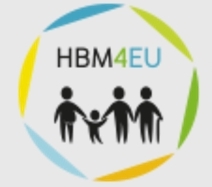European Human Biomonitoring Initiative – HBM4EU
European Research and Innovation Programme - Horizon 2020
Project participants:
Head: Dr Marike Gehring Kolossa (German Environmental Agency)
Duration: 2017-2021
HBM4EU is a joint effort of 28 countries, the European Environment Agency and the European Commission, co-funded under Horizon 2020.
The main aim of the initiative is to coordinate and advance human biomonitoring in Europe. HBM4EU will provide better evidence of the actual exposure of citizens to chemicals and the possible health effects to support policy making.
The HBM4EU initiative represents a novel collaboration between scientists and chemical risk assessors and risk managers, including several Commission services, EU agencies and national representatives. The project will build bridges between the research and policy worlds and deliver benefits to society in terms of enhanced chemical safety.
HBM4EU will run for five years, from 2017 to 2021. In developing priorities for HBM4EU under the first annual work plan, the consortium conducted a prioritisation exercise to identify those substances to be the focus of activities. Additional rounds of prioritisation will be carried out during the project lifespan to ensure that our research responds dynamically to policy needs.
People are exposed to a complex mixture of chemicals in their daily lives through the environment, consumer products, food and drinking water and at work. HBM4EU will use human biomonitoring to assess human exposure to chemicals in Europe, to better understand the associated health impacts and to improve chemical risk assessment. At the level of the individual, human biomonitoring data can inform medical treatment or guidance on the need to reduce exposure. HBM4EU partners will establish a dialogue with policy makers to ensure that our results can be used to support the development of policies, to evaluate existing policies and to design measures to reduce exposure to toxic chemicals. Our results will inform the safe management of chemicals and so protect human health in Europe.

